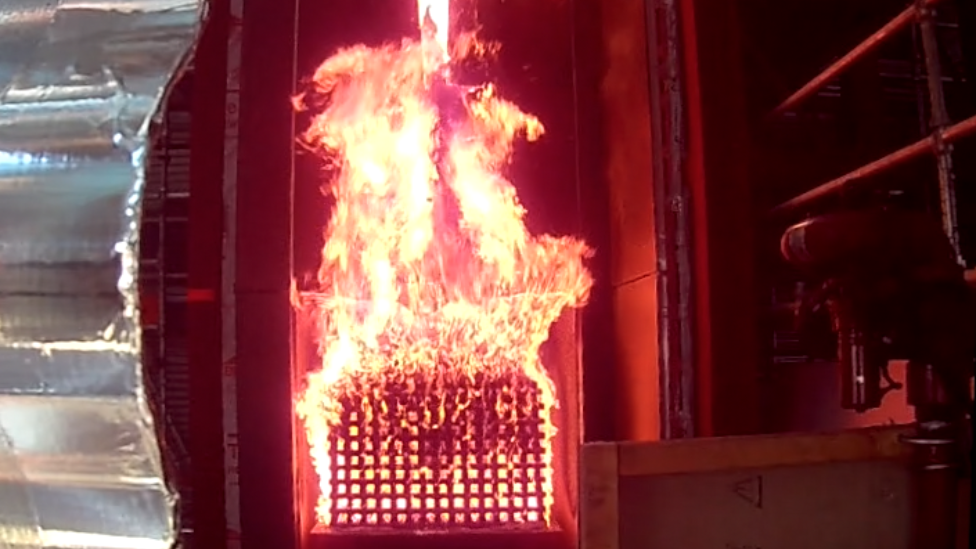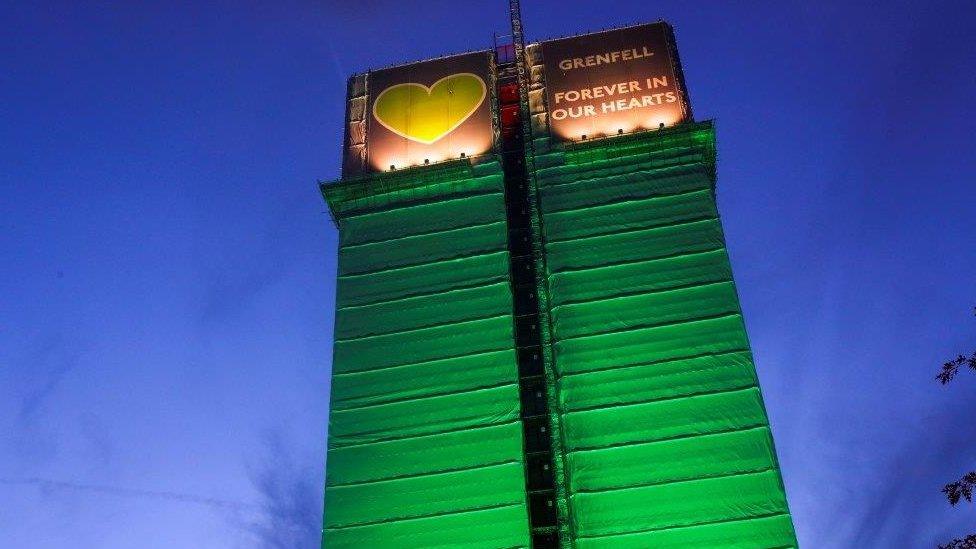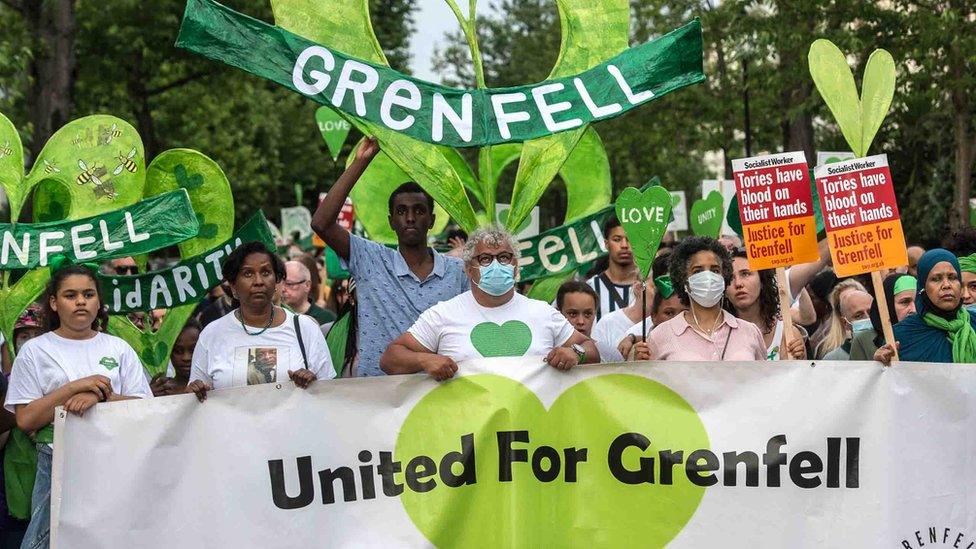Grenfell cladding: Did it fail safety tests 13 years before fire?
- Published

Tests similar to this one showed the dangers of cladding in the early 2000s, it has emerged
A fire safety expert is demanding ministers reveal whether "highly dangerous" cladding, secretly tested in the early 2000s, was the product used at Grenfell Tower.
In September, the BBC uncovered details of cladding products that failed safety tests some 13 years before the blaze.
Dr Jonathan Evans believes among these was the aluminium and plastic cladding that spread the 2017 London fire.
The government says a planned new law will improve building safety.
Industry expert Dr Evans, a member of the British Standard 8414 committee set up to review the standards of testing, has written to Housing Secretary Michael Gove, demanding confirmation of his conclusions.
"There couldn't have been a clearer warning," he wrote.
A document dated 2004 and leaked to the BBC detailed tests carried out in about 2002, on five unnamed cladding systems, all of which failed to meet the required standard.
Dr Evans says the third system tested, produced results "strikingly similar" to the tests carried out on the Grenfell cladding after the fire in June 2017, as the government scrambled to understand the scale of the building safety crisis.
The leaked document describes the system as "aluminium". Dr Evans notes that the Grenfell cladding was aluminium with a layer of plastic which was highly flammable.
The supplier of the cladding panels used at Grenfell was Arconic (formerly Alcoa), a multinational metals manufacturer. The product name was Reynobond 55PE.

Dr Evans points to the similar pattern in graphs of the way the temperatures rose in each test, suggesting they were conducted on the same product.
In September, the Conservative government described the 2002 tests, carried out when Labour was in power, as "experiments" that were not designed to test the intrinsic safety of the products, but the criteria for the tests themselves.
In his letter to Mr Gove, Dr Evans said the tests "show that the State was specifically aware of how deadly cladding materials such as ACM [aluminium composite material] can be".
"It was a clear forewarning of what would happen at Grenfell 15 years later, killing 72 people. It should have been avoided - there couldn't have been a clearer warning.
"Firefighters and residents have been in peril for many years due to the failure to heed the warnings of this test."
Dr Evans said there should never have been a policy of telling residents to "stay put" when fires broke out, if they were living in buildings with this sort of flammable aluminium cladding.
Grenfell's "stay put" advice has been partially blamed for the high loss of life in the disaster.
The Grenfell Tower public inquiry is expected to examine the earlier tests closely, and ask the Building Research Establishment, which carried them out, what was tested.
Dr Evans said if the government had evidence of the risks of aluminium composite cladding, and did not take action to prevent it being used, the government should now fully fund the cost of removing it from buildings.

United for Grenfell protesters wait for answers from the government, four years after the fatal fire at Grenfell Tower.
The government has announced £5bn in funding to make buildings safe, but experts believe far more is needed.
"Without doubt," Dr Evans wrote to Michael Gove, "observing this 2002 test would have been a shocking experience", and the fact the third system tested allowed flames to spread "should have been obvious" to people watching the test, and those receiving the report of it.
This document - dated 2004 and passed to the BBC in Sept 2021 - was marked "commercial in confidence" and never made public.
The report's significance was "either missed completely, or deliberately ignored... in a culture which permitted the use of cheaper materials," Dr Evans wrote.
The leaked document was passed to the Grenfell Tower public inquiry following the BBC's story.
In response, the Department for Levelling Up, Housing and Communities said its Building Safety Bill would make the biggest improvements to building safety in 40 years, "where successive governments have failed... with more rights and protections for residents and a £5bn investment to remove unsafe cladding.
"The new Building Safety Regulator will enforce a more stringent regulatory regime for buildings over 18m and oversee the safety and performance of all buildings, ensuring products are removed from the market if they do not meet regulation."